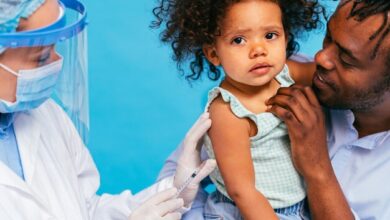10 Essential Vaccinations for Children in Nigeria

Vaccination is a critical aspect of public health, particularly for children, as it helps prevent various infectious diseases that can have severe consequences. In Nigeria, where preventable diseases remain a public health challenge, ensuring children receive essential vaccinations is vital. Here are ten essential vaccinations for children in Nigeria:
- BCG (Bacillus Calmette-Guérin) Vaccine
The BCG vaccine protects against tuberculosis (TB), a significant health concern in Nigeria. It is administered at birth or within the first few weeks of life, providing early protection against severe forms of TB, such as TB meningitis and disseminated TB. - Hepatitis B Vaccine
This vaccine is crucial for preventing hepatitis B, a viral infection that can lead to chronic liver disease and cancer. The hepatitis B vaccine is typically given at birth, with additional doses administered at 6, 10, and 14 weeks. - DTP (Diphtheria, Tetanus, and Pertussis) Vaccine
The DTP vaccine protects against three deadly diseases: diphtheria, tetanus, and whooping cough (pertussis). It is administered in a series of doses at 6, 10, and 14 weeks of age, followed by booster shots in later years. - OPV (Oral Polio Vaccine)
The oral polio vaccine is critical for preventing poliomyelitis, a highly infectious viral disease that can lead to paralysis. Nigeria has made significant strides in polio eradication, and vaccination is essential. OPV is given at birth and in subsequent doses at 6, 10, and 14 weeks. - MMR (Measles, Mumps, and Rubella) Vaccine
The MMR vaccine protects against three contagious diseases: measles, mumps, and rubella. In Nigeria, the measles vaccine is administered at 9 months, with a second dose typically given between 15 and 18 months. Measles outbreaks have been a significant public health concern, making this vaccine essential. - Yellow Fever Vaccine
Yellow fever is a viral disease transmitted by mosquitoes, and vaccination is crucial in areas where the disease is endemic. The yellow fever vaccine is given at 9 months of age and provides lifelong protection. - Pneumococcal Conjugate Vaccine (PCV)
The PCV protects against pneumonia, meningitis, and sepsis caused by Streptococcus pneumoniae. It is administered in a series of doses at 6, 10, and 14 weeks of age and is critical in reducing childhood morbidity and mortality from respiratory infections. - Rotavirus Vaccine
The rotavirus vaccine is essential for preventing severe diarrhea and dehydration caused by rotavirus infection, which is a leading cause of childhood mortality in Nigeria. The vaccine is given in two or three doses, depending on the brand used, starting at 6 weeks of age. - Human Papillomavirus (HPV) Vaccine
The HPV vaccine protects against cervical cancer and other HPV-related diseases. While it is typically recommended for girls aged 9 to 14, increasing awareness and vaccination coverage can help reduce the future burden of cervical cancer in Nigeria. - Typhoid Vaccine
The typhoid vaccine is important in preventing typhoid fever, especially in areas with poor sanitation. Vaccination is recommended for children over 2 years old, particularly in high-risk regions.
Vaccinations play a crucial role in protecting children’s health and preventing outbreaks of infectious diseases in Nigeria. Awareness of these essential vaccinations and ensuring timely administration can significantly reduce childhood morbidity and mortality. Parents and guardians are encouraged to consult healthcare providers and participate in vaccination programs to safeguard the health of their children and communities. By prioritizing immunization, Nigeria can move closer to achieving its public health goals and improving the overall well-being of its population.




